This self-study module provides a mix of book chapters, digital talks and lectures, scientific papers, and a movie on the general theme of Being Human.
The module consists of 10 references of which you are to select the 5 you find most relevant and study the references at your own pace during Ideation.
You are encouraged to expand your investigations beyond the module, and to seek advice and inspiration from the peers and experts you meet during Ideation.
Reference: Goodley, Dan (2016) Beginnings: Conceptualising disability in a global world. In: Disability studies: An interdisciplinary introduction. Sage Publications. Chapter 1.
Format: Text, ebook
Keywords: Disability Studies, Politics, Disabled People’s Movement, Perspectives on disability
Work load: 26 pages
Description: This book chapter examines a varied range of theories and perspectives on disability and engages with present discussions in the field of Disability Studies. Goodley’s text encourages readers using thought-provoking questions, exercises, and activities for students and researchers across disciplines.
Link: Individual links to the e-book have been sent via email.
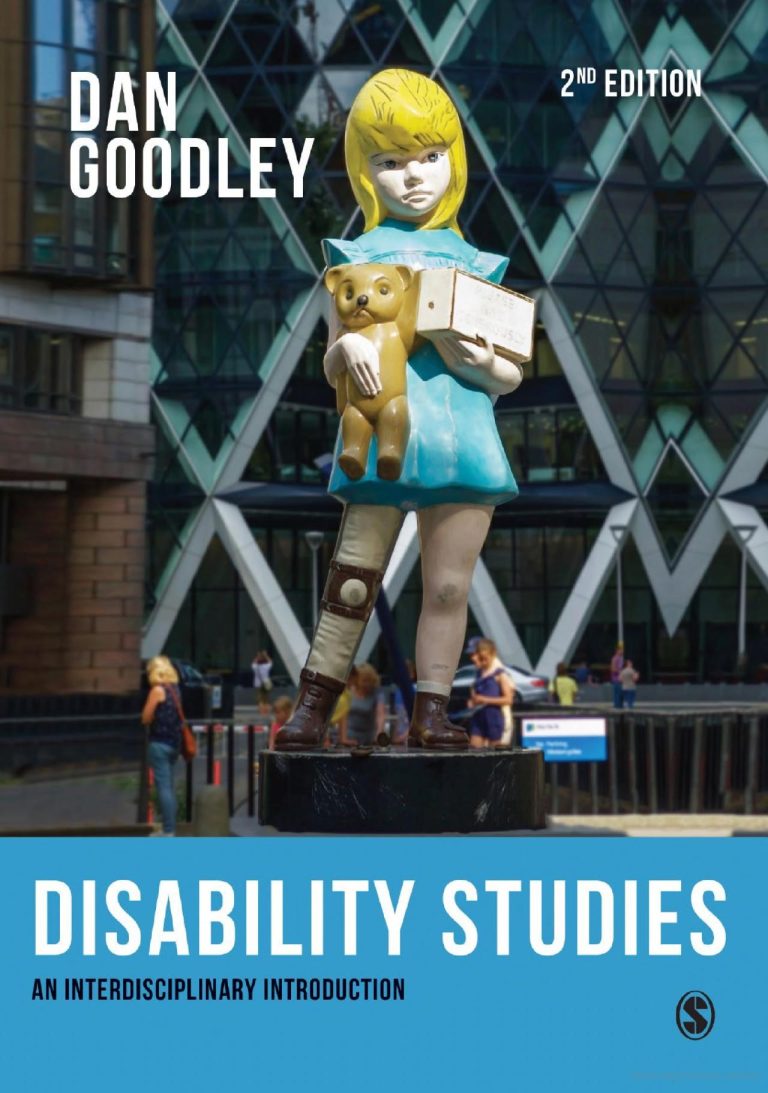
Reference: Shakespeare, Thomas (2018) Understanding Disability. In: Disability: the basics. Routledge. Chapter 1.
Format: Text
Keywords: Understanding Disability, Disability Across Time and Place, Lived Experiences
Work load: 24 pages
Description: Disability: the basics is an introduction to disability as a multi-dimensional concept and explores the historical, social, environmental, economic, and legal factors which affect experiences of people living with impairments in modern-day society. It offers an understanding of the lived experiences of disabled people and underline continuing gaps and barriers in social responses to the challenge of disability.
Link: https://www.routledge.com/Disability-The-Basics/Shakespeare/p/book/9781138651395
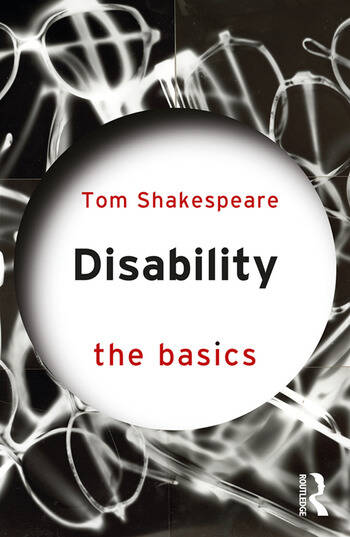
Reference: Lid, Inger Marie (2012) Disability as a human condition discussed in a theological perspective. Diaconia. Journal for the Study of Christian Social Practice. Vol. 3.
Format: Text
Keywords: Understanding Disability, Disability Across Time and Place, Lived Experiences, Law, Politics
Work load: 14 pages
Description: This article discusses the understanding of disability in a notion of human diversity that includes disability as a human condition. From a disability studies perspective, a medical understanding of disability has been criticised for the absence of disabling structures in society. Lid argues that inclusive concepts of humanity must guide law and politics.
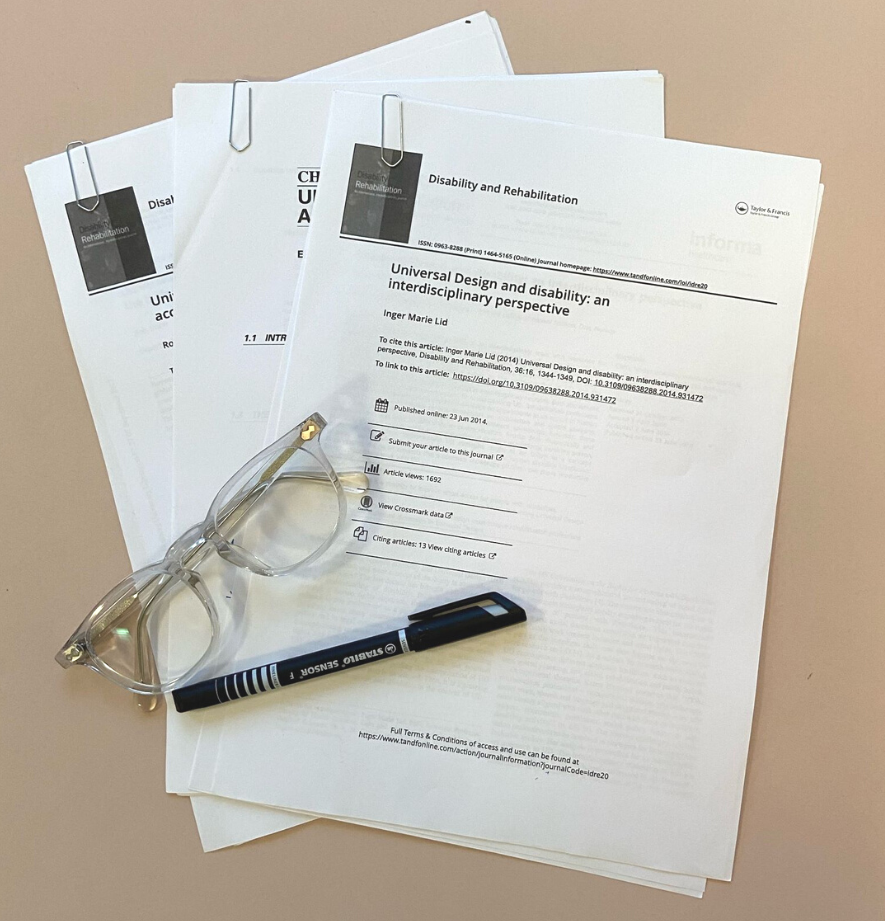
Reference: Charlton, James (2000) Nothing About Us Without Us. In: Nothing About Us Without Us: Disability Oppression and Empowerment. Berkeley, CA: University of California Press. Chapter 1, pp. 3-18.
Format: Text
Keywords: Disability Rights Movement, Disability oppression, Lived experience, Organization of Empowerment, History
Work load: 15 pages
Description: This book chapter is the introduction to the landmark book on disability Nothing About Us Without Us, written by disability rights activist James Charlton. The book chapter touches briefly on topics about the disability rights movement, disability oppression, lived experiences, and disability as a social construction. Overall, the book provides a theoretical overview of disability oppression that shows its similarities to, and differences from, racism, sexism, and colonialism.
Access: Can be retrieved from your educational library.
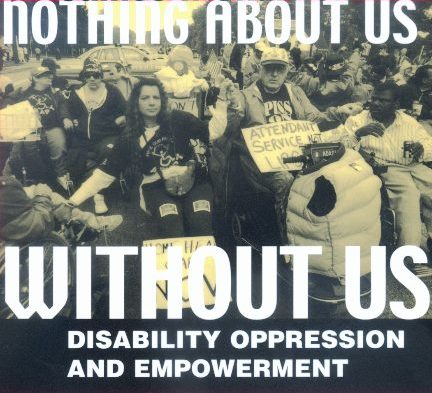
Reference: Rose, Todd (2021) Nobody is average. Here’s why. FacebookFirstReads
Format: Text
Keywords: Critique, Average, One-dimensional metrics, The science of the individual
Work load: 5 pages
Description: This text is an excerpt from the book The End of Average – How We Succeed in a World the Values Sameness written by Todd Rose. The text briefly showcases Rose’s argument of how there is no such thing as an average body or level of intelligence. These notions are a figment of a misguided scientific imagination.
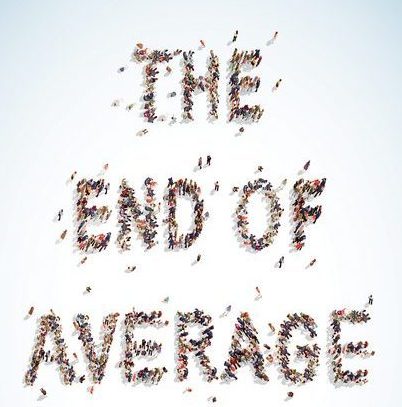
Reference: Imre, Robert (2003) Architects’ conceptions of the human body. Environment and Planning D Society and Space 21(1):47-65.
Format: Text
Keywords: Architecture, Human body, Cartesian conceptions, Vitruvian body, Physiological diversity
Work load: 19 pages
Description: In this article, Robert Imre argues how most influential architectural theories and practices fail to recognise bodily and physiological diversity. He stresses a tendency among architects to design to specific technical standards and dimensions which revolve around a Cartesian conception of the ‘normal’ body.
Link: https://www.researchgate.net/publication/260049643_Architects’
_Conceptions_of_the_Human_Body

Reference: Rose, Todd (2013) The Myth of Average: Todd Rose at TEDxSonomaCounty.
Format: Video
Keywords: One-dimensional metrics, Jagged size profile, Learning environments, Technology, Talent
Work load: 18 minutes
Description: In this TED Talk, Todd Rose argues that if you design for the average sized person you design for nobody. According to Rose we all have “a jagged size profile” meaning that our body dimensions such as height, weight and waist are not the same on every dimension. Ultimately, Rose argues how we ought to ban the average and generate designs that accommodate for the edges of dimensions.
Reference: Falster, Emil (2022) Models of disability: A short introduction. Lunch Bag Lecture. Universal Design Hub – Bevica Fonden.
Format: Video
Keywords: Theory, Models of disability, Impairment effects, Barriers and Solutions
Work load: 7 minutes
Description: In this video, Emil Falster discusses three different models of disability: the medical model, the social model, and the relational model. He argues how our understanding of terms such as disability and impairment effects how we understand the barriers and challenges that people with impairments face every day – and how these understandings, ultimately, generate the solutions we ideate to create equal opportunities for participation.
Reference: Shakespeare, Tom (2022) Models of disability (with a side order of The Life of Brian). Better Together 2022 Conference.
Format: Video
Keywords: Models of disability, Disability, Impairment, Convention on the Rights of Persons with Disabilities (CRPD), The International Classification of Functioning, Disability and Health (ICF)
Work load: 35 minutes
Description: This video introduces the history and conceptualisation of three different models of disability: the medical model, the social model, and a laminated model (integrating the two). Tom Shakespeare ultimately argues that disability is an interaction working on different levels (the biological, psychological, environmental, and social level) in different contexts of society and everyday life.
Reference: Crip Camp (2020) Higher Ground Productions.
Format: Video
Keywords: Discrimination, Disability Rights Movement, Activism, Empowerment, History
Work load: 1 hour 46 minutes
Description: In the early 1970s, teenagers with disabilities faced a future shaped by isolation, discrimination, and institutionalization. This movie tells the story about one group of disabled young people and their journey to activism and adulthood, and in doing so, provides an opportunity for all to delve into the rich and complicated history of disability activism, culture, and history.
BEVICA FONDEN
Linnésgade 18, 1. sal
1361 København K
Cvr-nr. DK-75576315
EAN-nr. 5797200036056
BEVICA FONDEN is a foundation that, through partnerships, works to strengthen conditions for self-governance and independent life for people with mobility impairments. This work is based on research and knowledge on Universal design as an interdisciplinary and value-based concept.
Copyright 2022 © Bevica Fonden